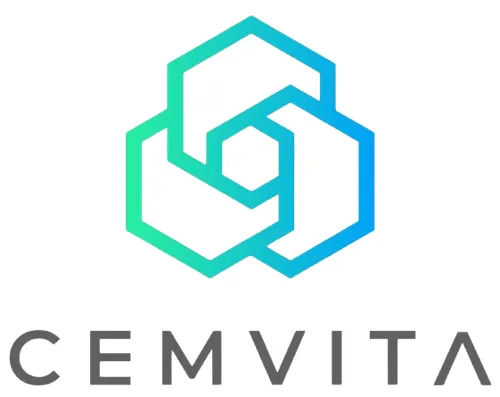
Cemvita Accelerates Toward Commercialization with Breakthroughs in FermOil™ and FermNPK™ Development
Cemvita, a trailblazer in industrial biotechnology, has reached two pivotal milestones that mark significant progress in its mission to drive a circular bioeconomy. These breakthroughs not only demonstrate the company’s scientific and operational prowess but also bring it significantly closer to a final investment decision (FID) for its first commercial-scale biomanufacturing plant in Brazil.
Surpassing Productivity Targets with FermOil™
At the heart of Cemvita’s achievement is a dramatic improvement in the bioprocess productivity of its proprietary microorganism used to produce FermOil™, the company’s sustainable oil alternative. This advancement, realized well ahead of schedule, enhances the commercial feasibility of Cemvita’s FermWorks™ facility—a flagship waste-to-value biomanufacturing plant.
Specifically, the increased productivity was achieved by using crude glycerol, a low-cost and readily available byproduct from the biodiesel industry. This waste-derived feedstock is crucial to the economic and environmental performance of FermOil™, which is designed to serve as a feedstock for Sustainable Aviation Fuel (SAF).
“This productivity milestone is a big part of how we continue to make industrial biotech cheaper and faster,” said Moji Karimi, CEO and Cofounder of Cemvita. “I’m so proud of our team for accomplishing what many thought was not possible, and certainly not this fast.”
By meeting its productivity targets at least six months early, Cemvita not only boosts its credibility with investors and partners, but also proves the technical viability of its approach. The early success is likely to influence the FID timeline positively, accelerating the path to commercialization.
Enhancing Soil Health with FermNPK™
Simultaneously, Cemvita has reported promising third-party validation of FermNPK™, the company’s innovative soil bio-stimulant that serves as a co-product of the FermOil™ production process. FermNPK™ is more than just a fertilizer substitute; it is a multifaceted soil amendment that delivers macronutrients—nitrogen, phosphorus, and potassium (NPK)—alongside essential micronutrients and complex organic compounds like proteins and carbohydrates.
These compounds play a vital role in restoring soil vitality by feeding beneficial microbial communities, improving biodiversity, and helping regenerate degraded and desertic land. As such, FermNPK™ aligns closely with the principles of regenerative agriculture, a movement focused on reviving soil ecosystems and reversing land degradation.

Test results reveal that FermNPK™ supports precision agriculture, especially for organic and high-value crops, which require sustainable soil inputs. By reducing dependence on synthetic fertilizers, which are often fossil fuel-intensive and ecologically harmful, FermNPK™ promotes a healthier and more resilient agricultural system.
The Planetary Boundaries Framework
Cemvita’s innovation is guided by the planetary boundaries framework, an environmental model that goes beyond carbon accounting to include critical dimensions like land use, water consumption, and biodiversity loss. By applying this holistic lens, the company ensures that its products are developed with the entire ecosystem in mind.
“Cemvita’s commitment to sustainability is shaped in no small part by the leadership of our Chief Science and Sustainability Officer,” said Tara Karimi. “When we talk about sustainability at Cemvita, we don’t stop at carbon. Our products are designed with the whole planet in mind—from the microbes we engineer to the ecosystems we aim to heal. That’s the power of biology when it’s done right.”
This framework ensures that the FermWorks™ facility is more than just a low-emissions plant; it’s a model for how the industrial sector can operate within the limits of Earth’s capacity to support life.
A Circular Bioeconomy in Action
Cemvita’s approach is grounded in the concept of a circular bioeconomy—one where waste is transformed into valuable products and no resources are used without a regenerative return. According to Marcio Silva, Cemvita’s Chief Technology Officer, the company’s platform efficiently utilizes every carbon atom introduced into its system.
“Every carbon atom we feed into our process is converted into valuable green chemicals,” said Silva. “Whether it’s biofuels, soil biostimulant fertilizers, or raw materials for industrial manufacturing, our process turns waste into wealth. That’s what a real circular bioeconomy looks like.”
This philosophy is embodied in the FermWorks™ project, which aims to commercialize Cemvita’s waste-to-value model on an industrial scale. The facility is designed to integrate with biodiesel producers and other industrial operations that generate crude glycerol, ensuring both a steady feedstock supply and a low-carbon footprint.
Unlocking Sustainability-Linked Incentives
The twin pillars of FermOil™ and FermNPK™ position Cemvita to benefit from a wide array of sustainability-linked incentives. These include:
- SAF tax credits for using renewable feedstocks in aviation fuel production.
- Carbon market revenues from reducing industrial greenhouse gas emissions.
- Biofertilizer subsidies aimed at displacing chemical inputs in agriculture.
- Nature-based finance mechanisms, such as biodiversity credits and regenerative agriculture grants.
This diversified incentive portfolio enhances the economic attractiveness of the FermWorks™ plant and reduces financial risk for potential investors and partners.
Strategic Alignment Across Sectors
Cemvita’s strategy brings together energy, agriculture, and finance—three sectors that are pivotal to the global sustainability transition. By creating cross-industry partnerships, the company is building a resilient ecosystem for scaling its technology.
Energy companies find value in the SAF feedstock opportunity. Agricultural players are drawn to the regenerative potential of FermNPK™. Financial institutions see promise in an integrated platform that aligns with ESG goals and offers exposure to multiple emerging markets.
With such broad alignment, Cemvita is not only de-risking the technology and market pathways but also creating a blueprint for next-generation industrial development.
Brazil as a Launchpad
Cemvita’s decision to establish its first commercial FermWorks™ plant in Brazil is a strategic one. The country is a global leader in biofuels, home to a robust biodiesel production ecosystem, and endowed with vast tracts of degraded land ripe for regenerative practices.
This environment provides a fertile testing ground for FermOil™ and FermNPK™, while also allowing Cemvita to contribute meaningfully to Brazil’s national climate and land restoration goals.
Cemvita’s twin breakthroughs in FermOil™ productivity and FermNPK™ validation mark a defining moment in the emergence of a sustainable, circular bioeconomy. With its science-backed platform, early commercialization success, and systemic sustainability focus, the company is charting a new course for industrial biotechnology.
From renewable fuel to regenerative soil treatment, Cemvita is proving that biological innovation can be scaled responsibly—and profitably. As the company accelerates toward a final investment decision for its Brazil plant, it sends a powerful signal to the market: the future of industry is biological, circular, and deeply rooted in planetary stewardship.




